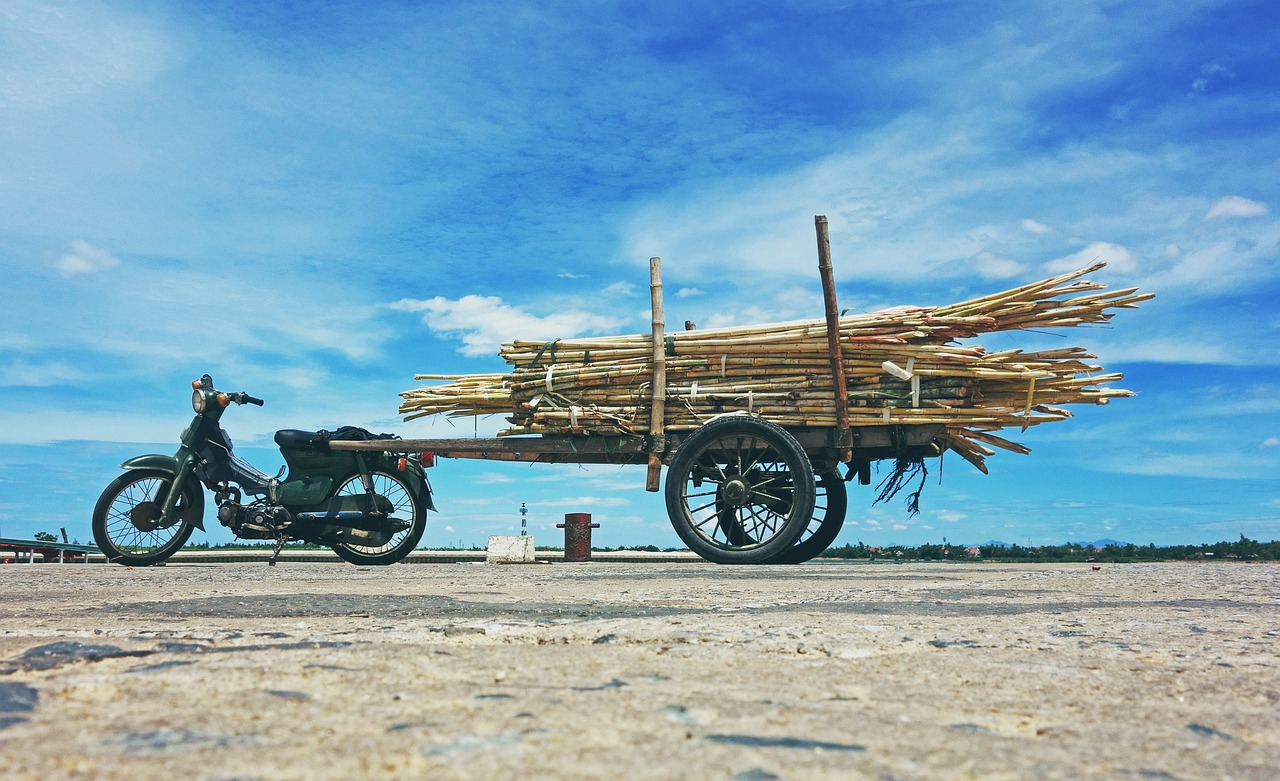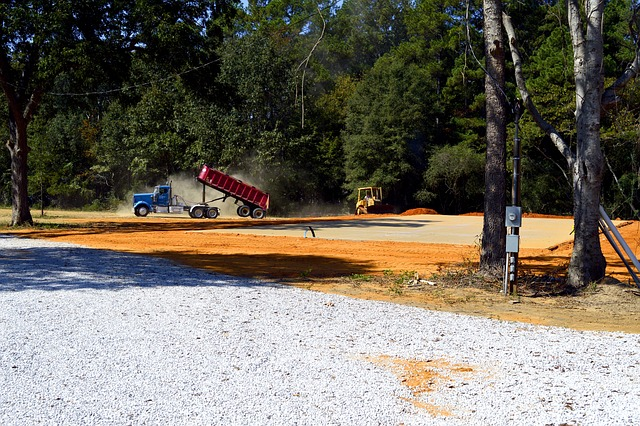Have you ever wondered the importance of an equipment trailer? When it comes to moving heavy-duty machinery and equipment from one place to another, using the right type of trailer is of utmost importance. Equipment trailers are specifically designed to transport vehicles, construction equipment, and other large items.
These trailers are built to withstand the weight and endure rough terrain while providing stability without compromising safety. In this blog post, we will discuss what equipment trailers are and what makes them an essential part of the transportation industry.
What is an Equipment Trailer?
An equipment trailer is designed to allow the transportation of heavy machinery and equipment such as bulldozers, backhoes, excavators, and more. These types of trailers are specifically built to bear the weight of these heavy devices without getting damaged or causing accidents. They are made of heavy-duty materials that can withstand the weight and size of the equipment.
Guide to Understanding Types of Equipment Trailers
When it comes to moving agricultural machinery, demolition equipment, and construction tools from one location to another, equipment trailers have been the go-to solution for professionals and small business owners. It is a cost-effective and efficient way of transporting heavy equipment and machinery for long distances. Choosing the right type of equipment trailer is crucial to ensure safe transit of equipment. There are a variety of equipment trailers available in the market, and selecting one among them can be a tricky task.
Flatbed Trailers
Flatbed trailers are one of the best equipment trailers for general-purpose use. They usually have a large deck that can vary in length from 16 feet to 53 feet, allowing the trailer to accommodate almost any type of equipment. Flatbed trailers are primarily used for transporting construction materials, large machines, and heavy-duty equipment. They do not have walls or roofs and come equipped with ramps for easy loading and unloading. This is one of the standard construction trailers.
Lowboy Trailers
Lowboy trailers are suitable for transporting equipment that has a height greater than 10 feet, such as bulldozers, loaders, and excavators. The low height of the trailer’s deck bed provides added stability, making it easier to transport oversized and overweight equipment. Lowboy trailers often have detachable goosenecks that are hydraulic or mechanically operated to assist in loading and unloading.
Dump Trailers
Dump trailers are commonly used for transporting and dumping sand, gravel, and other materials from job sites. They have hydraulic pistons, which lift up the bed for unloading. Dump trailers can be easily operated by one person and are available in both single and double axle configurations. They are ideal for small businesses or independent contractors who need to haul small loads of equipment and materials.
Enclosed Trailers
Enclosed trailers are the best option for transporting high-value equipment and tools. They offer protection against the weather and theft. Enclosed trailers have side doors and rear doors making it easy to load and unload equipment. They come in various sizes and can be customized to accommodate specific equipment and tools. Enclosed trailers are perfect for transporting generators, computer servers, and other sensitive equipment.
Refrigerated Trailers
Refrigerated trailers are ideal for transporting temperature-sensitive goods such as food and medicines. They are equipped with refrigeration units that provide temperature control and range from -20°F to 70°F. Refrigerated trailers are often used to transport produce, meat, dairy, and other perishable goods.

Understanding the Differences between Heavy and Small Equipment Trailers
Transporting heavy or small equipment across different locations can be a daunting task. Choosing the right trailer can make the job easier and more efficient. Here, we’ll explore the major differences between heavy equipment trailers and small equipment trailers.
Size and Weight Capacity
The most obvious difference between heavy equipment trailers and small equipment trailers is their respective weight capacity. Heavy equipment trailers are designed to carry equipment weighing thousands of pounds, while small equipment trailers are meant for lighter loads. Heavy equipment trailers are usually wider and longer than their small counterparts. They are reinforced with thicker metal frames and more durable axles to support the weight they carry. Make sure you know your hauling requirements before you choosing the trailer for you.
Compatibility
Another critical factor when choosing a trailer is its compatibility with the equipment that you intend to move. Heavy equipment trailers are designed to transport specific heavy equipment, such as excavators, bulldozers, or cranes. They are often equipped with features such as ramps and tie-down points to make loading and unloading easier. Small equipment trailers, on the other hand, are designed to transport smaller machines, such as lawnmowers, power tools, and ATVs.
Safety
When moving equipment from one place to another, safety should be a top priority. Both heavy and small equipment trailers have unique safety considerations. Large trailers have unique handling requirements to prevent swaying and fishtailing. They require a significant investment in terms of quality of materials, braking systems and locking mechanisms to keep the equipment in place during transit. Likewise, small equipment trailers have their own unique safety features, such as secure locking mechanisms to prevent theft while in transit.
Cost
Another significant difference between heavy equipment trailers and small equipment trailers is the cost. Heavy equipment trailers are much more expensive than small trailers due to the additional features they come with. In addition to their weight-bearing capacity, they are equipped with hydraulics and winches to load and unload the heavy equipment safely. Small trailers are less expensive, require less maintenance, and are easier to store when not in use. However, it’s important to assess your needs carefully and find the right balance between cost and functionality.
Importance of Equipment Trailers
Without equipment trailers, moving heavy machinery and equipment from one place to another would be difficult, dangerous, or even impossible. These trailers ensure the safety of the driver and equipment while also allowing for transportation between job sites. They provide a cost-effective option to rent or own specific equipment trailers as opposed to buying multiple different trailers for various types of equipment.
Things to Consider When Selecting an Equipment Trailer
When selecting an equipment trailer, there are various factors that one should consider. The weight of the equipment to be transported and the towing capacity of the vehicle used to haul the trailer should be considered. The width and height of the equipment also need to be checked. Additionally, the terrain and distance of travel should also be factored in.
Maintenance of Equipment Trailers
To ensure that equipment trailers last longer, maintenance and upkeep should be done regularly. This includes checking the tires for wear and tear, ensuring proper lighting and electrical, and making sure the brakes are functioning correctly. Doing routine maintenance can prevent accidents and prolong the life of the equipment trailer.

Conclusion
In conclusion, an equipment trailer is an essential tool in safely and efficiently moving heavy machinery and equipment. There are different types of equipment trailers available tailored to specific requirements. Of course, selecting the right equipment trailer is key to safe and efficient transportation. Taking the time to check transportation items’ weight, towing capacity, width, height, and the terrain and distance should be noted. Regular upkeep and maintenance of equipment trailers are vital to their durability and longevity. By understanding equipment trailers, you can transport your machinery and equipment safely, securely, and efficiently with minimal hassle.

Interstate Haulers
Interstate Haulers is the solution to all your heavy equipment transportation needs. If you need your equipment trailer hauled, you can count on us to provide safe, reliable and efficient services. Our team of experienced professionals is equipped to handle just about anything, any load size, ensuring that your equipment reaches its destination in perfect condition. At Interstate Haulers, we understand the importance of timely delivery, which is why we work around the clock to ensure that your shipment gets to its destination on time. Don’t hesitate, reach out to us today for all your hauling needs.




